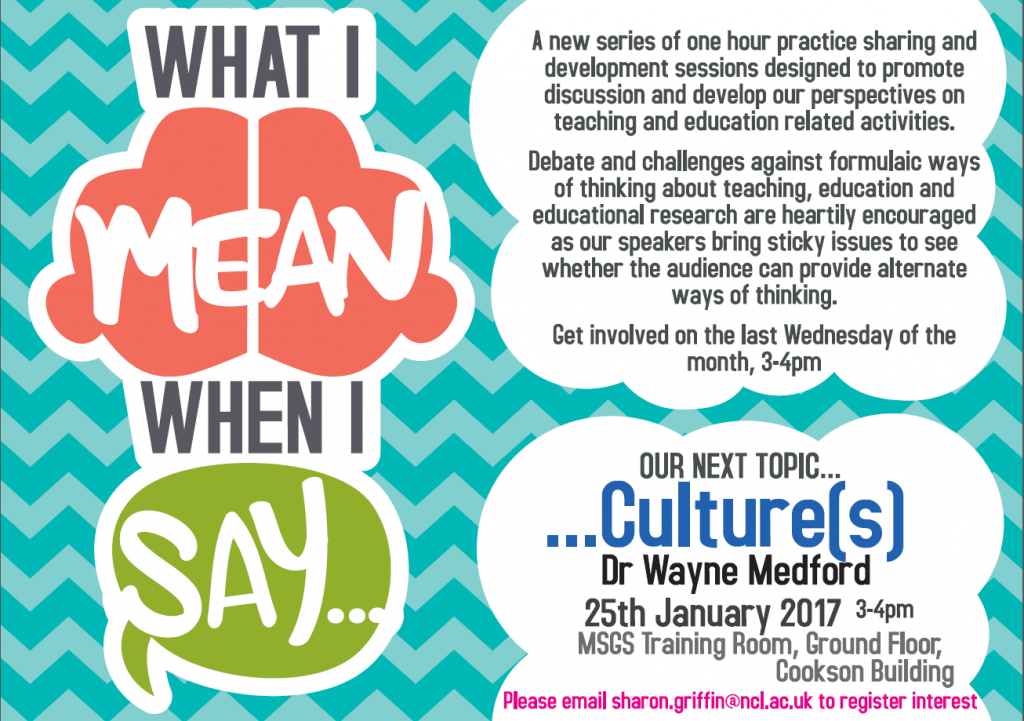Do you often feel frustrated with rooms which are ill-equipped or badly set up for your teaching?
Do you want to have your say on teaching spaces around campus?
Estates, NUIT and researchers from the Research Centre for Learning and Teaching have come together to offer academics across the University the opportunity to do just that.
The Teaching Sandpit, to be set up in King George VI Building will give academics the opportunity to try out a new kind of teaching space and to feedback to decision-makers in NUIT and in Estates on what sorts of facilities they would like to see rolled out across the University.
Dave Allsopp from NUIT explained: ‘Usually when decisions are made about what sorts of technical equipment available in or even the basic layout of teaching rooms, we don’t have time to consult with teaching staff, the staff who will use those rooms.
‘This will give us the opportunity to find out what people want and to really engage with academics across campus to find out what sorts of technologies they may want to try out, even what sorts of furniture might work in common teaching rooms and what they might expect or need from spaces across campus.’
The idea came out of research conducted by Ulrika Thomas of the Research Centre for Learning and Teaching, who completed a study with colleague Pam Woolner looking at how students and staff perceived teaching rooms across campus and what the expected from them.
Ulrika explained: ‘Our study was really well-received and its findings have now been referred to the Executive, who want to act on our findings.
‘The sandpit is one idea which has come out of this research, giving staff an opportunity to see what might be available to them, to try it and to feedback on what works.’
The idea of a sandpit came, as Dave explains, from a similar exercise undertaken at Wolverhampton University, in which staff were given the opportunity to feedback based on their use of a sandpit space in which new technologies and layouts could be trialed.
Here at Newcastle the project is looking for:
- Academic colleagues to deliver one-off small group teaching sessions and road test new ways of teaching using different styles and new technology
- Professional Support Services to deliver specific training to colleagues in use of new and existing technology
- Professional support teams to evaluate new technology and furniture engaging with academic colleagues and students to understand how it could be used in the successful design and provision of teaching and learning spaces in the future
Staff can volunteer by filling out this online form, and can discuss requirement with the project team.
Support will be provided by NUIT on technologies offered within the space and all users will have the opportunity to feedback on the experience.
It is expected that the space will not be utilised for normal teaching but perhaps for one-off sessions with 10-15 students.
Colin Fahey of NUIT, who in leading on the project, said: ‘The most important thing is to get academics into the space and get their feedback.
The whole project depends on the engagement of teaching staff, we need them to come along and use the space and to tell us what they found.’
Staff are encouraged to get in touch if they:
- Have any proposals or suggestions around innovative technology or furniture that you are aware of and may wish to see considered for inclusion in the space?
- Would be interested in trialing the space once it becomes bookable?
The space will be made available for use shortly after Easter 2017 so interested parties should web-form by Friday 24th February 2017 and the team will contact them with further information.


